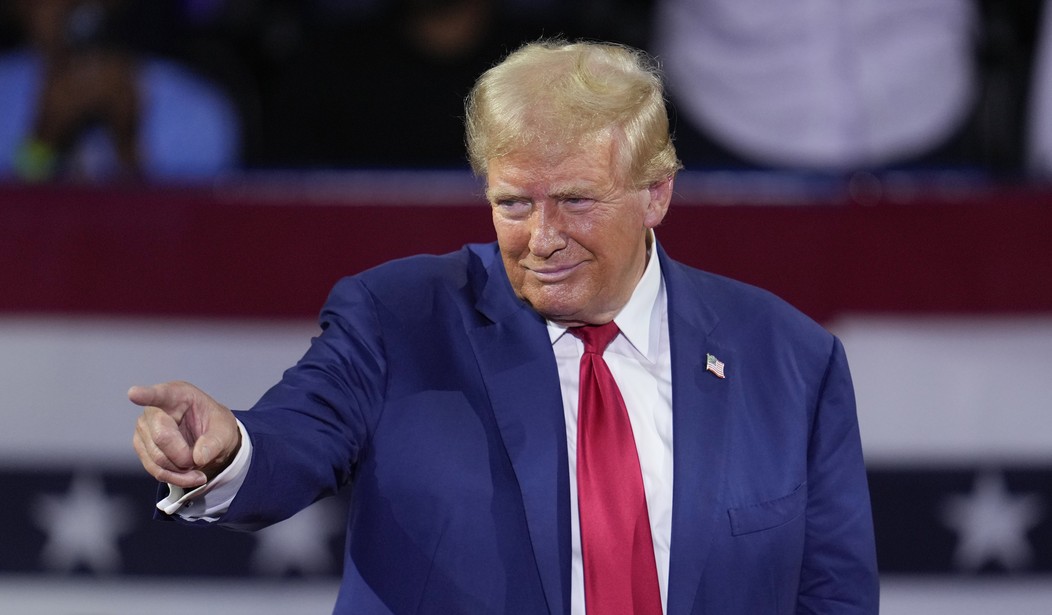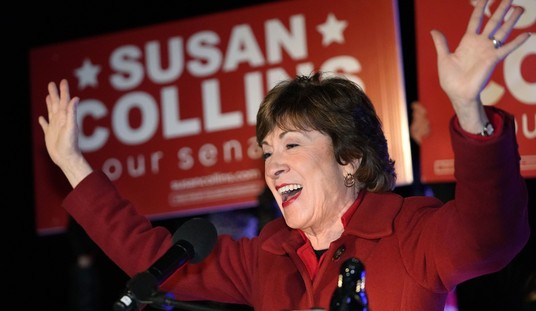We sometimes try to make politics more complicated than it really is. Polls, surveys, focus groups, and forecasting all boil down to which candidate can conjure the magic to get to 270 electoral votes.
Ultimately, there really isn't much magic at work. The 2024 presidential election will come down to three states: Pennsylvania, North Carolina, and Georgia. If Donald Trump can win all three, Kamala Harris can't win the presidency without a miracle. Conversely, if Harris can win Georgia and North Carolina, Trump will face insurmountable odds even if he can win Pennsylvania.
“It comes down to seven battleground states, you got to win four of them in order to carry it,” Republican National Committee Chair Michael Whatley told Politico. “Except if you win Georgia, North Carolina, and Pennsylvania, then that’s going to get you over the hump.”
Democrats have carried North Carolina and Georgia only once each this century. Barack Obama won North Carolina in 2008, while Biden carried Georgia by a whisker in 2020. Trump carried Pennsylvania in 2016 and lost the Keystone state in 2020.
“With big [media] reservations coming in for North Carolina, I’d be surprised if there wasn’t a big reservation coming in next from one of the Trump super PACs,” said Kurt Pickhardt, a GOP media consultant. “He’s trying to block off her Southern route.”
“From inference, you can see where they’re thinking their bread is buttered,” said Quentin Fulks, the vice president’s deputy campaign manager.
Trump's route to the White House is a little easier than Harris's. Harris is in a "must-win" scenario for both Michigan and Pennsylvania. Otherwise, she'd be forced to win both North Carolina and Georgia.
History is not on her side. Since 1980, Democrats have won Georgia only three times: Jimmy Carter in 1980, Bill Clinton in 1992, and Joe Biden in 2020. Obama has been the only Democrat to capture North Carolina since 1980. Trump and Harris are virtually tied in both states but history is hard to beat. Look at Republicans in Minnesota.
Every four years, Minnesota teases the GOP candidate with the prospect that he can break through and win the state. It's a mirage. Every four years, Republicans come up short. The history of the Democratic Party (known as the Democratic Farm-Labor Party) permeates every corner of the state making a Republican victory a difficult ask.
If Trump’s best chance to wall off Harris from 270 electoral votes is clear enough to both campaigns, it’s also not lost on them that the vice president at least has more options than Biden. Before ending his campaign in July, the president was almost certainly was going to depend on a Great Lakes-only strategy, his hopes hinging on being able to retain Wisconsin, Michigan and Pennsylvania. Harris, though, has an insurance policy in the South. And she may need it: Trump’s polling, at least before last week’s debate, has consistently had him leading Harris in Pennsylvania, even when the modeling was tilted toward what one Republican called the campaign’s “worst-case scenario.”
Democratic internal polling, also, makes clear why Pennsylvania is the most difficult of the Great Lakes states for them. A survey earlier this month in Rep. Susan Wild’s (D-Pa.) Lehigh Valley district, perhaps the purplest of the purple in the state, showed Harris trailing by a single point
Trump's support from black voters, specifically, young black men, has the Harris camp sweating bullets. Black men under 30 give Trump 25% support which would be curtains for her campaign. Anything less than a 90% or above black vote for Harris will end her White House hopes.
Unfortunately, Trump is his own worst enemy in Georgia and North Carolina. His attacks on Gov. Brian Kemp (R-Ga.) have infuriated Republicans in the state and his elevation of Mark Robinson in North Carolina as the GOP candidate for governor looks bad at this point after some horrible remarks Robinson made on a porn website became public. All Trump can do in North Carolina is answer "Mark who?" when asked about Robbinson.
One thing about presidential politics is that the closer we get to election day, the more the electorate reverts to tradition and history. With Trump's record of outperforming polls and surveys, it shouldn't surprise us if Trump wins all three critical battleground states and perhaps Michigan as well.










